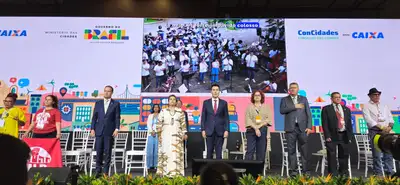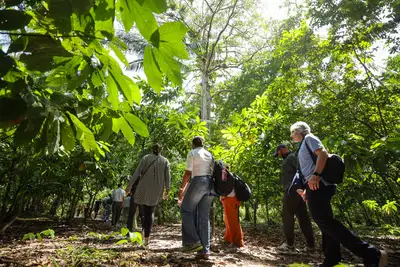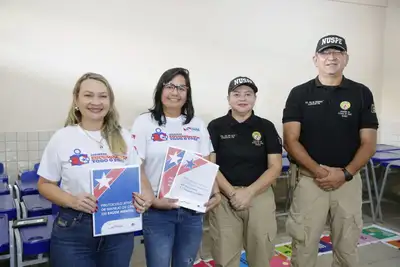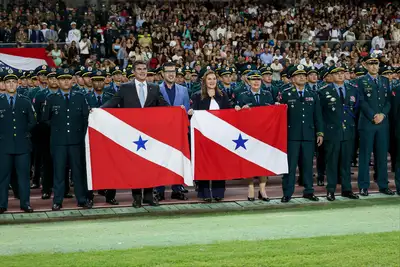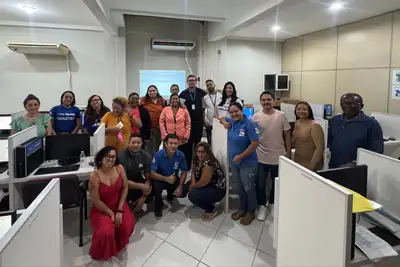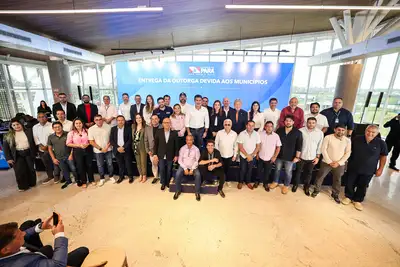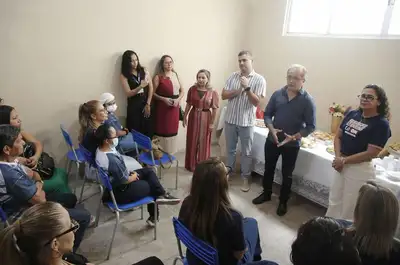Peace Factories Inspire Projects and Attract Attention from Brazil and the World
During COP30, the citizenship complexes of the Government of Pará received visits from delegations interested in closely understanding the model of community transformation in Belém and the interior.
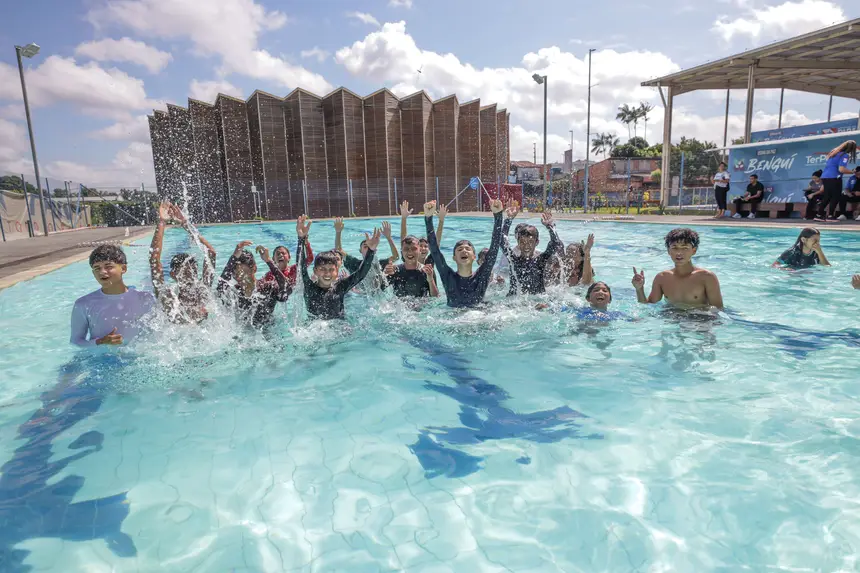
The Peace Factories, multifunctional complexes implemented by the Government of Pará with the aim of promoting inclusion, reducing violence, and improving the quality of life in vulnerable areas, have established themselves as a reference in public policies for citizenship, security, and social transformation, attracting attention and serving as inspiration for projects in Brazil and other countries.
In recent weeks, during which the city of Belém welcomed thousands of tourists for the programming of the 30th United Nations Conference on Climate Change (COP30), the social complexes received visits from delegations from different regions of Brazil and abroad, interested in closely understanding the model that has been transforming the reality of communities in Pará.
During the visits, the groups, composed of public managers, researchers, and influencers, learned about the modern and functional structure of the Peace Factories, which bring together more than 70 services in citizenship, culture, sports, education, professional qualification, and social mediation in a single space. For many, the Pará model has already established itself as a reference for innovation and social impact.
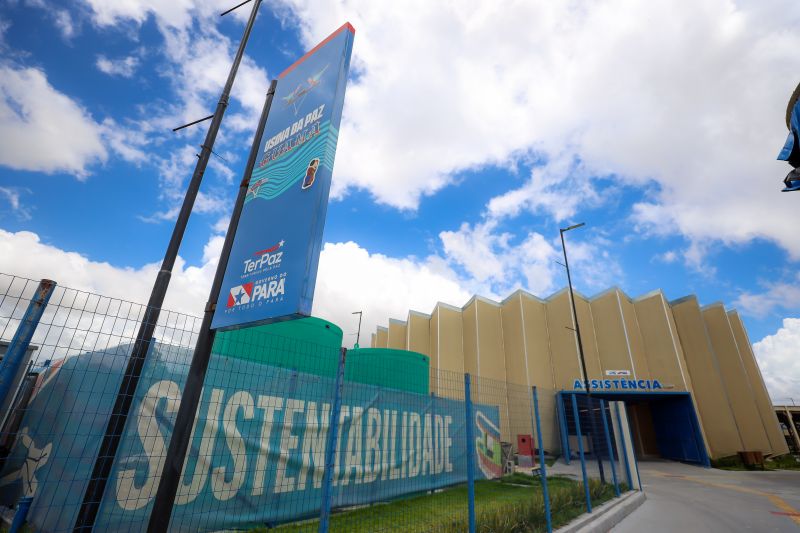
“We see that it is a project that really works. We learned about some courses here and saw inspired classes, and people leaving here full of knowledge. This is a great incentive. I think it serves as a mirror and model for all of Brazil,” declared Brazilian digital influencer Thaynara OG during her visit to the Guamá Peace Factory in the capital of Pará.
National and International Reference - The success and results achieved by the Peace Factories in reducing violence rates and generating opportunities for communities in Pará have served as inspiration for the implementation of similar projects in other Brazilian states and even in other countries.
“We are implementing a similar project in Porto Alegre (RS), and when I came to Belém, I made a point of visiting the Peace Factory, a place of knowledge, entrepreneurship, and care for social issues. This is a project that has worked in Pará, and we can adapt it,” said the mayor of Porto Alegre, the capital of Rio Grande do Sul, Sebastião Melo.
“This is a government action that allows us to work with the most diverse communities, and we understand that this is the way. In Uruguay, we are implementing a similar project, and without a doubt, the Peace Factory is a very important reference for this work,” highlighted the Minister of Housing and Territorial Planning of Uruguay, Tamara Paseyro, upon visiting the UsiPaz Cabanagem.
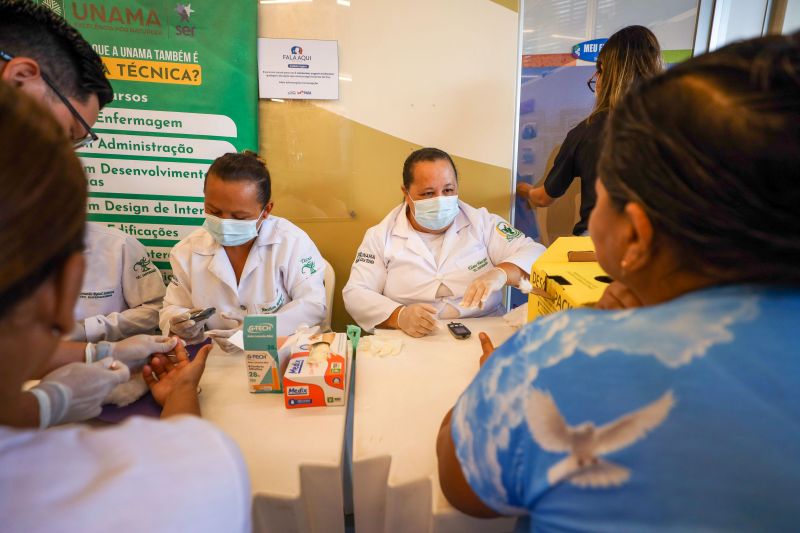
Cultural and Scientific Exchange - The cultural and knowledge exchange promoted during the visits also opened doors for partnerships with foreign educational institutions and research centers, enabling the offering of courses, training, and educational programs within the Peace Factories. The initiatives aim to further expand educational and professional opportunities for residents of the served communities and to insert the Pará project into global research and academic cooperation networks.
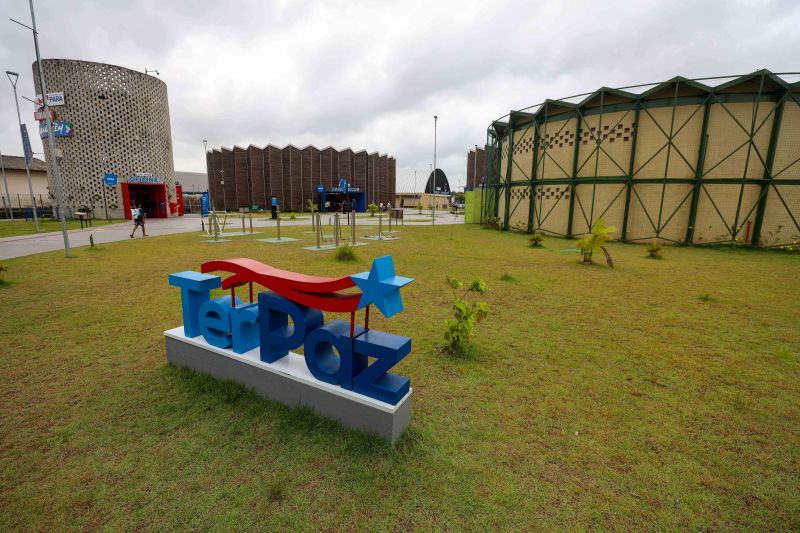
“The Peace Factories are beautiful facilities that offer an incredible variety of services to people. We are very happy to support this mission of bringing all these valuable services to the communities here in Belém. Certainly, we can contribute with the classes and resources used in technology courses, developing new ideas and services that can be applied in the communities,” said American Kent Larson, director of MIT City Science at the Massachusetts Institute of Technology in the United States.
The researcher leads a group that develops work and research aimed at exploring new visions for urban communities, focusing on improving the social, environmental, and economic performance of cities.
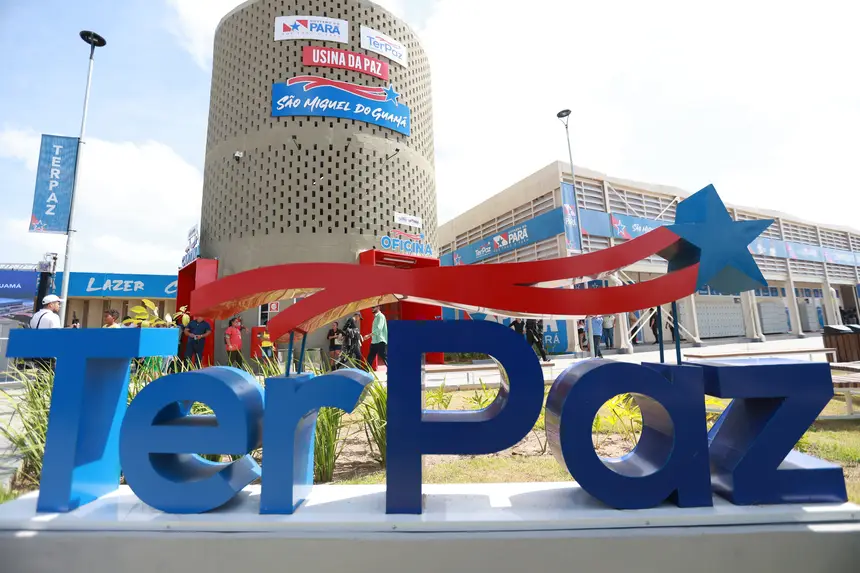
Transformative Results - The growing national and international interest reinforces the role of the Peace Factories as a landmark in promoting inclusion, social development, and community work. With significant results and increasing recognition, the Pará project consolidates itself as a global reference in social transformation.

The Secretary of Citizenship Articulation, Elieth Braga, emphasized the pride in seeing the project crossing borders. “The Peace Factories show that when the state and community walk together, the result is transformative. Receiving so many delegations from Brazil and the world confirms that we have built a model that inspires and strengthens public policies for citizenship,” she assured.
Since 2021, the Peace Factories have already guaranteed more than 10.9 million services in various regions of the State. Currently, 18 units are in operation, five of which are in the capital (Jurunas/Condor, Guamá, Terra Firme, Bengui, and Cabanagem) and another 13 distributed among municipalities in the Metropolitan Region of Belém and the interior: Ananindeua, Marituba, Benevides, Castanhal, Capanema, Moju, Bragança, São Miguel do Guamá, Abaetetuba, Tucuruí, Marabá, Parauapebas, and Canaã dos Carajás. Another 19 Peace Factories are under construction, and new units will soon be announced.



